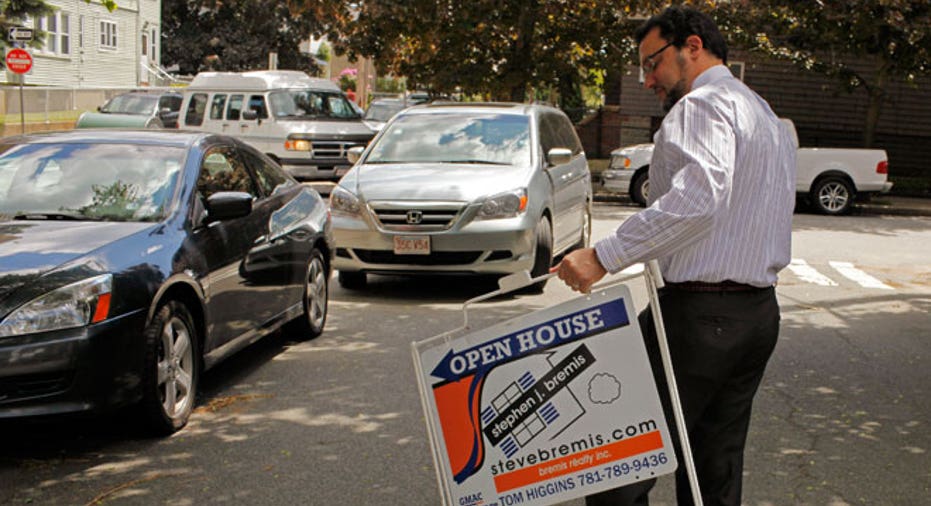Are There Options Besides Walking Away from Home?

Dear Real Estate Adviser,
We bought at the height of the market in 2006. We have an interest-only loan and our payments are affordable for now, but we desperately need a bigger place for our three boys. The problem is that new homes similar to ours are selling for $30,000 to $40,000 less than what we still owe. Should we tough it out, attempt a short sale or simply walk away?
-- Carmen M.
Dear Carmen, There's nothing to be gained by just walking away. After the foreclosure action that would follow such a move, you'd have to wait two to three years (or more) before you could buy a home again conventionally, depending on the lender and many other factors. In the meantime, your credit would take a pummeling, and that might affect your family adversely in other ways.
As for the "tough it out" option, that apparently won't address your growing space needs. But if you are considering staying, you could try talking with your lender about the prospects for either a loan modification or refinancing. Ask specifically about the Home Affordable Refinance Program, or HARP; the Home Affordable Modification Program, or HAMP; and the Home Affordable Foreclosure Alternatives Program, or HAFA. With your interest-only loan structure, you may not have enough equity to refinance or modify.
The Short Option
A short sale, though, in which the mortgage lender agrees to accept a payoff for less than the balance of the loan, might be a way out. But you should know that the approval of a short sale typically hinges on the lender's belief that the borrower will soon be unable to make mortgage payments. Since you're not having trouble with payments, your lender might have less motivation to go along. Some banks, though, are amenable to "strategic short sales," where a seller can afford to make mortgage payments, at least for the time being, but chooses not to. This tack is more apt to be approved by a lender if the seller is experiencing a different form of hardship, such as unemployment or underemployment, medical problems, job transfer, unanticipated repairs, or other increasing debts or expenses. If you have balloon payments coming up, which are inevitable with many interest-only loans, that alone could place you in the "hardship" category.
If you do hammer out a deal for a short sale, make sure there's a written agreement that includes the full satisfaction of your loan so there can be no deficiency judgment levied against you. For more guidance, it might be a good idea to contact an agent who specializes in short sales and has experience with your specific lender. Short sales, I should warn, can fall apart easily because there are so many moving parts, so gird yourself.
Buying a Home After a Short Sale
You can buy a home soon after a short sale in many cases because the majority of mortgage lenders are now conforming with a 2009 clarification from the Department of Housing and Urban Development that's sympathetic to short sellers. It says the Federal Housing Administration, or FHA, can allow folks like you to buy another house after a short sale if they "were current on their mortgage and other installment debts at the time of the short sale ... and the proceeds from the short sale serve as payment in full." In other words, if you didn't miss payments prior to the short sale, didn't incur a deficiency judgment and your credit history remains good, you can buy immediately using FHA financing.
Another "escape" option would be for you to rent out your place and use your currently good credit to buy another home, though most folks who do this might run at least a small monthly loss on the property and take on added insurance burdens and other related obligations. If you simply opt to go the foreclosure or bankruptcy route, you might seek out a lease-option or lease-to-own house for your next family home as your credit heals. There are still plenty of these on the market.
Good luck with your current and next house -- and those growing boys!
Bankrate's content, including the guidance of its advice-and-expert columns and this website, is intended only to assist you with financial decisions. The content is broad in scope and does not consider your personal financial situation. Bankrate recommends that you seek the advice of advisers who are fully aware of your individual circumstances before making any final decisions or implementing any financial strategy. Please remember that your use of this website is governed by Bankrate's Terms of Use.
Copyright 2013, Bankrate Inc.



















